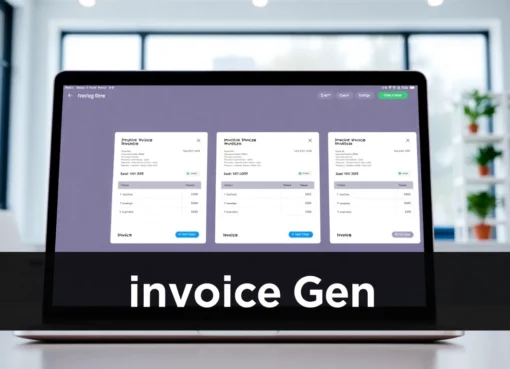Streamlining Real Estate with a Comprehensive All-in-one Platform for Agents

Understanding the Features of an All-in-one Real Estate Platform
Key Components: CRM, Listing Management, and Transaction Tools
At the heart of any successful real estate operation lies an integrated ecosystem designed to streamline workflows, enhance productivity, and foster client satisfaction. An all-in-one real estate platform combines essential components such as Customer Relationship Management (CRM), listing management systems, and transaction facilitation tools into a unified interface. This consolidation eliminates the need for juggling separate software applications, reducing manual data entry errors, minimizing time wastage, and providing a seamless experience for agents and clients alike.
The All-in-one real estate platform typically features a sophisticated CRM that tracks every client interaction, automates follow-up tasks, and nurtures leads through the sales funnel. Listing management tools allow agents to create, update, and publish property information quickly, often auto-filling details from vast property data repositories for faster listings. Transaction tools guide users step-by-step through offers, negotiations, paperwork, and closing procedures, ensuring nothing falls through the cracks.
These core components are augmented with advanced features like automated workflows, task checklists, and document repositories, all accessible via a centralized dashboard. Such integrated systems empower agents to deliver top-tier service while managing multiple clients and properties efficiently.
How Integration Enhances Agent Productivity
Integration is the backbone of an efficient real estate platform. When CRM, listing management, communication tools, and transaction systems communicate seamlessly, agents experience a significant boost in productivity. For example, an agent can schedule a property viewing directly from a listing, communicate with the client through the same platform, and automatically update the status—all in real time.
Furthermore, integrations with third-party services such as mortgage providers, notaries, photographers, and inspection agencies enable agents to coordinate transactions without switching platforms. Automated alerts notify all stakeholders of upcoming deadlines or new open houses, ensuring timely responses. The reduction of manual data transfer translates into fewer errors and faster deal closing, which directly increases the number of deals an agent can handle in a given period.
Successful integration strategies involve establishing a robust API infrastructure, encouraging third-party development, and maintaining data consistency. These practices allow the platform to adapt dynamically to evolving industry needs, providing agents with a comprehensive toolkit that works cohesively.
Real-time Data and Market Insights for Better Decision Making
Real estate decisions are data-driven, making access to current market insights crucial. An all-in-one platform aggregates data from multiple sources, offering real-time updates on property prices, market trends, neighborhood statistics, and comparable sales. This wealth of information empowers agents to provide accurate valuations and strategic advice to clients.
Advanced algorithms analyze billions of data points—such as the platform’s ‘Find an Agent’ tool leveraging over 12 billion data points—to match buyer and seller clients effectively. These AI-driven insights streamline lead generation by targeting motivated prospects with high conversion potential, increasing overall success rates.
Incorporating up-to-date analytics into workflows allows agents to advise clients on optimal pricing, timing, and negotiation strategies. Real-time market monitoring also facilitates spotting emerging opportunities before competitors, positioning agents as trusted market experts.
Benefits for Real Estate Agents Using a Unified Platform
Saving Time and Reducing Manual Workflows
One of the most immediate advantages of an all-in-one platform is time savings. Traditional real estate operations often involve toggling between multiple tools: separate CRM, listing services, email providers, document repositories, and more. Each switch demands manual data entry, increasing the risk of inaccuracies and delays.
Modern platforms automate many manual tasks. For example, creating a listing can be as simple as reviewing auto-filled property data imported from their expansive database, then publishing with a few clicks. Lead capture and nurturing are automated through targeted campaigns within the platform, freeing agents from repetitive follow-up calls.
Automation extends to transaction management, where tasks like scheduling viewings, sending client updates, and organizing documents are handled automatically, freeing agents to focus on relationship building and closing deals.
Boosting Client Satisfaction and Engagement
Enhancing the client experience is fundamental to repeat business and referrals. A unified platform facilitates transparent, efficient communication by consolidating all interactions—messages, appointment scheduling, offers, and document sharing—into one accessible hub.
Clients appreciate real-time updates and proactive communication, which are easily managed through integrated notification systems. Additionally, features like virtual viewings, negotiated offers, and document signing within the same platform shorten the transaction timeline, creating a seamless journey from interest to closing.
High levels of engagement and transparency bolster trust and satisfaction. When clients see that their agent utilizes cutting-edge tools, they perceive greater professionalism and commitment.
Securing and Managing Client Data Safely and Efficiently
Data security is paramount in real estate, given the sensitive nature of personal and financial information involved. A reliable all-in-one platform employs robust encryption protocols, access controls, and compliance with industry standards (such as GDPR or CCPA) to protect user data.
Features like role-based permissions ensure only authorized personnel access confidential information, while secure cloud infrastructure guarantees data integrity and disaster recovery capabilities. These measures not only protect clients but also safeguard the reputation of the agency.
Transparency about data handling practices, coupled with regular security audits, builds trust and encourages clients to share complete and accurate information, facilitating smoother transactions.
Implementation Strategies and Best Practices
Onboarding Your Team onto the All-in-one Platform
Effective onboarding is critical for maximizing an all-in-one platform’s benefits. Start by creating a clear implementation plan that includes staff training, data migration, and setting expectations. Industry experts recommend a phased approach, beginning with core modules such as CRM and listing management, then gradually integrating transaction tools.
Invest in comprehensive training sessions that cover platform navigation, automation features, and best practices. Leverage resources provided by the platform vendor, including tutorials, webinars, and dedicated support teams.
Encouraging feedback during implementation helps identify challenges early and allows for continuous improvement. Highlighting early wins, like faster listing creation or improved communication, motivates adoption company-wide.
Utilizing Automation for Lead Generation and Follow-up
Automation is pivotal in transforming leads into clients. Platforms with integrated AI-driven algorithms, such as the use of billions of data points for targeted matching, significantly reduce manual outreach efforts.
Set up automated workflows for lead nurturing—sending personalized emails, scheduling follow-ups, and assigning tasks to team members. Utilize smart matching tools to receive exclusive leads directly, streamlining prospecting activities.
Consistent automation ensures no lead is ignored and nurtures relationships over time, increasing the likelihood of conversion and repeat business.
Tracking Performance Metrics to Optimize Results
Leveraging data analytics provided by the platform enables continuous performance evaluation. Key metrics include lead conversion rates, average days on market, transaction volume, client satisfaction scores, and pipeline health.
Regular review sessions help identify bottlenecks and opportunities for process refinement. Custom dashboards offer visual insights that assist strategic decision-making, ensuring the firm remains competitive and adaptable.
Applying performance insights empowers agencies to allocate resources effectively, refine marketing strategies, and enhance overall productivity.
Comparing Leading Platforms in the Market
Unique Selling Points of Various All-in-one Solutions
The market features several notable all-in-one real estate platforms—each with distinctive strengths. For instance, PLACE emphasizes top-tier team management features and profitability tools, while Brivity excels in comprehensive CRM, marketing, and lead capture.
Platforms like CINC focus heavily on lead generation via Google and Facebook integrations, making them ideal for aggressive online marketing. Others, such as Remine or PropertyRadar, stand out with extensive data analytics and property insights.
The differentiation often hinges on usability, integration depth, pricing, and scalability. Agencies should evaluate their specific needs—whether customer management, listing automation, or marketing—to select the solution aligning best with their growth objectives.
Pricing Models and Value Proposition
Pricing varies across providers, with most platforms offering subscription-based models. For example, Anyone’s full suite provides comprehensive features at a competitive rate of $99/month, locking this rate to maintain affordability. Some competitors employ tiered pricing, offering Basic, Pro, or Enterprise plans, which provide incremental features suited for different agency sizes.
A compelling value proposition combines features, scalability, support, and ROI. Investing in a platform that automates routine tasks, enhances client engagement, and integrates with third-party services often results in reduced operational costs and increased deal volume.
Careful analysis of total cost of ownership and potential productivity gains should guide procurement decisions.
Future Enhancements and Industry Trends
The real estate technology landscape is rapidly evolving. Upcoming features include advanced AI-powered valuation tools, expanded integration with mortgage and legal service providers, and automation of Notary and closing processes. Digital-only transactions and seamless ‘Buy now’ options are expected to become industry standards.
Trends indicate a shift toward more secure, accessible, and mobile-friendly platforms, emphasizing real-time analytics, virtual reality property tours, and blockchain-enabled transaction records. Staying ahead involves continually adopting scalable solutions that leverage artificial intelligence, machine learning, and cloud computing.
Maximizing ROI and Scaling Your Real Estate Business
Leveraging Data-Driven Marketing for Growth
Data is the new currency in real estate. By harnessing a platform’s analytics, agents can craft highly targeted marketing campaigns, focusing on demographics, geographic trends, and behavioral patterns. Data-driven marketing results in higher lead conversion rates and more efficient ad spend.
Platforms providing access to extensive property and consumer data enable precise audience segmentation. Implementing retargeting, personalized email nurtures, and social media advertising amplifies outreach effectiveness.
Expanding International Client Reach
A significant growth opportunity lies in expanding beyond local markets. Modern platforms support multi-language interfaces, global currency conversions, and international legal compliance, enabling agents to serve clients worldwide.
Features like virtual viewings, digital document signing, and secure global payment options facilitate cross-border transactions. Building a network of international referral partners and leveraging the platform’s global data resources bolster outreach efforts.
Inviting Colleagues and Building Collaborative Teams
Collaboration is pivotal for scaling operations. All-in-one platforms often allow inviting colleagues under the same company account, with role-based access assigning permissions according to function. This fosters teamwork, knowledge sharing, and collective growth.
Multi-user accounts streamline communication, reduce redundancies, and centralize transaction oversight. As teams grow, platforms can accommodate new users and integrate additional services, ensuring seamless expansion.
Moreover, cloud-based solutions enable remote collaboration, making it easier to manage multiple offices and remote agents effectively.
Final Thoughts: Embracing Technology for Future Success
Embracing an all-in-one real estate platform is no longer optional but essential for competitive success. With integrated tools that streamline workflows, enhance client engagement, and optimize data management, agents can operate more efficiently and profitably than ever before.
Platforms like Anyone exemplify the future of real estate technology—offering comprehensive, secure, and scalable solutions at an affordable rate. By adopting such systems thoughtfully, real estate professionals position themselves at the forefront of industry innovation, ready to meet the demands of an increasingly digital world.
Continuous evaluation, strategic implementation, and leveraging emerging features will ensure sustained growth and higher ROI. The key is to view technology as a strategic partner—empowering agents to work smarter, not harder.


